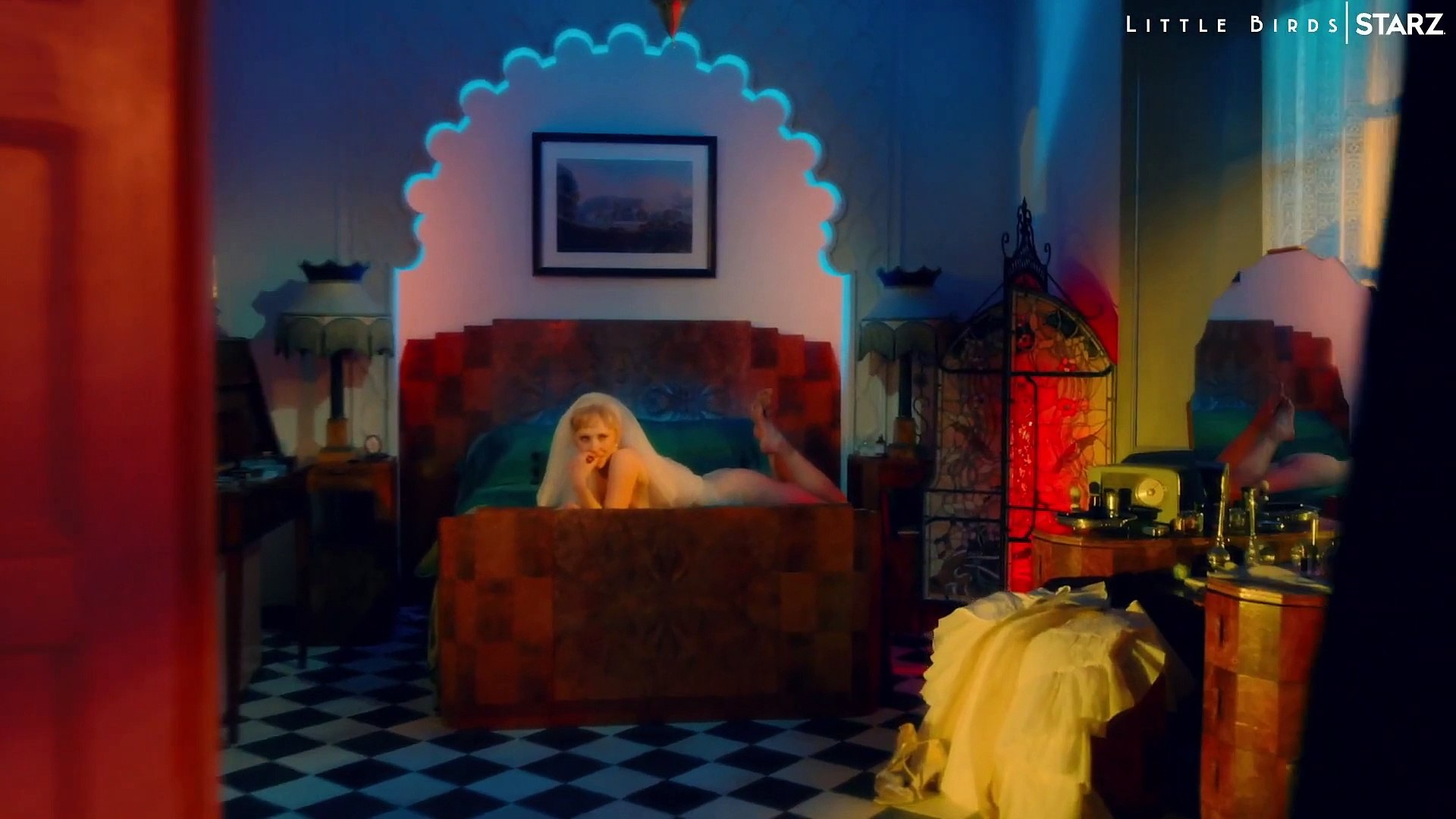If one were to say that Little Birds features a Ryan Murphy aesthetic, that’s simply because he’s cornered the market on neon-drenched luridness—to the detriment of lurid-drenched luridness. Because Little Birds, directed by queer filmmaker Staci Passon and developed by Sophia Al Maria, brings a 21st-century eye to Anais Nin’s collection of erotic short stories, simultaneously making sharp commentary on gender roles, sexuality, and international politics.
Anchored by Juno Temple (giving audiences something wildly different from Ted Lasso‘s Keeley), Nin’s short stories have been transplanted to 1955 Tangier, just before its reintegration into Morocco. Our guide to that wild bacchanal is American heiress Lucy (Temple), popping the pills prescribed by her stateside doctor as she joins her new husband in the International zone, where political tensions are running high and hormones even higher.
Lucy seems remarkably at home among the decadence of gold-toothed sex workers; horny French consulates; and outrageous jazz singers. But then she seems to have a few dark secrets of her own (not to mention a deeply unsympathetic family, including a mother who implores her to keep up her cigarette habit to stay slim).
She quickly finds a place for herself amid the luscious happenings in her new home, even as her marriage turns out to be a dowry-based fraud to help her gay husband keep his private life concealed and Tangier itself seems on the brink of imploding. But as in Weimar Germany, the coming dark clouds are nothing compared to the relentless sun and desert, punctuated by drink, drugs, and sexual peccadillos.
Though the series can feel at times disjointed—there’s a lot going on in each episode—Passon brings a uniting vision to the heat-soaked happenings. Everyone seems barely repressed until drugs or liquor come out, and then everyone immediately reverts to their ids. Through it all, one is never sure how much Lucy is scandalized, aroused, or frightened. Temple’s performance is a marvel at juggling all three, often in the same scene. By the time she coolly levels her gun at one man and then hysterically begs another to shoot at her in the same episode, you’re as likely to be a fan for life as you are to start pricing flights to Morocco.




